Related Research Articles
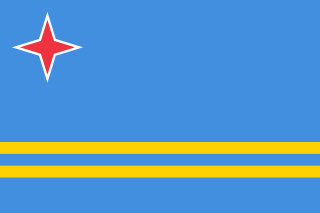
Aruba, officially known as the Country of Aruba, is a constituent country within the Kingdom of the Netherlands, situated in the south of the Caribbean Sea. Aruba is located approximately 29 kilometres (18 mi) north of the Venezuelan peninsula of Paraguaná and 80 kilometres (50 mi) northwest of Curaçao.

The Netherlands Antilles was a constituent country of the Kingdom of the Netherlands. The country consisted of several island territories located in the Caribbean Sea. The islands were also informally known as the Dutch Antilles. The country came into being in 1954 as the autonomous successor of the Dutch colony of Curaçao and Dependencies. The Antilles were dissolved in 2010. The Dutch colony of Surinam, although relatively close by on the continent of South America, did not become part of the Netherlands Antilles but became a separate autonomous country in 1954. All the island territories that belonged to the Netherlands Antilles remain part of the kingdom today, although the legal status of each differs. As a group they are still commonly called the Dutch Caribbean, regardless of their legal status. People from this former territory continue to be called Antilleans in the Netherlands.

Gilberto François "Betico" Croes was an Aruban political activist who was a proponent for Aruba's separation from the Netherlands Antilles. This eventually occurred in 1986, but following a car accident on 31 December 1985, Croes lapsed into a coma and never became conscious to see his accomplishment. He is best remembered as "Libertador" (liberator) and as the father of the Aruban people.

.an was the Internet country code top-level domain (ccTLD) for the former Netherlands Antilles. It was administered by the University of the Netherlands Antilles. The domain was phased out after the Netherlands Antilles were dissolved in 2010. As of November 2010 the .an domain remained live with over 800 domains registered under .an, including secondary levels. On 31 July 2015, use of the domain was discontinued.
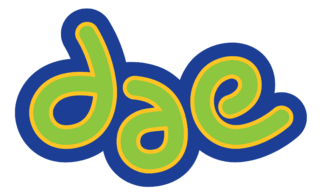
Dutch Antilles Express B.V. was an airline of the Dutch country of Curaçao. It operated high-frequency scheduled services in the Dutch Caribbean to United States, Dominican Republic, Colombia, Haiti, and Suriname. Its main base was at Curaçao International Airport.
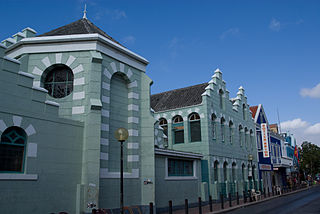
The Catholic Church in the Caribbean part of the Kingdom of the Netherlands is part of the worldwide Roman Catholic Church, under the spiritual leadership of the Pope in Rome.

The Dutch Caribbean are the territories, colonies, and countries, former and current, of the Dutch Empire and the Kingdom of the Netherlands in the Caribbean Sea. They are in the north and south-west of the Lesser Antilles archipelago.

The 1969 Curaçao uprising was a series of riots on the Caribbean island of Curaçao, then part of the Netherlands Antilles, a semi-independent country in the Kingdom of the Netherlands. The uprising took place mainly on May 30, but continued into the night of May 31 – June 1, 1969. The riots arose from a strike by workers in the oil industry. A protest rally during the strike turned violent, leading to widespread looting and destruction of buildings and vehicles in the central business district of Curaçao's capital, Willemstad.

The Bonaire national football team is the national football team of the Caribbean island of Bonaire, a public body of the Netherlands. It is under the control of the Bonaire Football Federation. It became a member of the CFU and an associate member of CONCACAF on 19 April 2013. after which it became a full CONCACAF member on 10 June 2014 The team can participate in the CONCACAF Gold Cup and Caribbean Cup because of their membership in the confederation and sub-confederation. However, Bonaire is not a member of FIFA and therefore can not compete in the FIFA World Cup or other FIFA events.

Alette Beaujon was a Dutch poet and psychologist from the Netherlands Antilles. Born in Curaçao and later living in the Netherlands and Aruba, she published poems in Dutch, English and Papiamento, while working as a clinical psychologist. A collection of her unpublished poems were discovered after her death and released in 2009.

The Second Jonckheer cabinet was the 2nd cabinet of the Netherlands Antilles.

The Isa-Beaujon cabinet was the 7th cabinet of the Netherlands Antilles.
Laura Simona Wernet-Paskel was an Aruban teacher, writer, and politician. She was the first female political candidate in Aruba, running for office three times beginning in 1949.
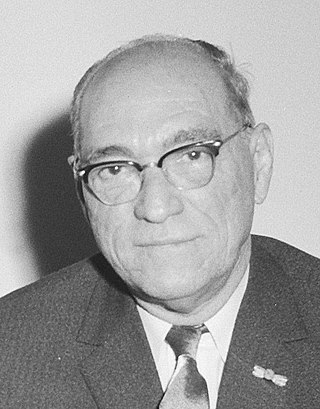
Willem Frederik Meinhardt (Wem) Lampe was a politician of the Netherlands Antilles. Lampe served as Minister of Justice from 1951 to 1952, and from 1954 to 1955. He was Minister Plenipotentiary from 1955 to 1967.
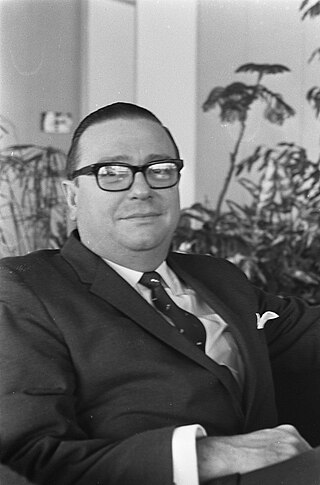
Efraïn Jonckheer was a businessman and politician of the Netherlands Antilles. Jonckheer served as Prime Minister of the Netherlands Antilles from 8 November 1954 until 14 February 1968. He served as Minister Plenipotentiary of the Netherlands Antilles from 1968 until 1971, Ambassador of the Netherlands to Venezuela from 1971 until 1976, and to Costa Rica from 1976 until 1982. As of 2022, Jonckheer was the longest serving Prime Minister in the history of the Kingdom of the Netherlands.

Bernadito M. "Ben" Leito was a Curaçaoan economist, politician and administrator. He served as Governor of the Netherlands Antilles from 1970 until 1983, and the Dutch Council of State from 1987 until 1993.

Ernesto Otilio "Netto" Petronia was an Curaçao-born Aruban businessman and politician. He served many times as a minister with multiple portfolios, and was Prime Minister of the Netherlands Antilles from 1969 until 1971.

Sylvius Gerard Marie "Boy" Rozendal was an Curaçao politician and journalist. He served as Prime Minister of the Netherlands Antilles from 1971 until 1975, Minister of Finance and Deputy Prime Minister from 1969 until 1971, and Minister Plenipotentiary of the Netherlands Antilles from 1971 until 1975.

John William Merryweather was an Aruban landscape architect and politician. He served as the first Minister Plenipotentiary of Aruba from 1986 until 1989.
Antonius Johannes van Koolwijk was a Dutch clergyman of the Roman Catholic Church. His notable contributions lie in the field of archeological research, particularly his studies on the indigenous culture of Aruba, Bonaire, and Curaçao during the late 19th century. Van Koolwijk is recognized as the pioneering archeologist of the ABC islands.
References
- 1 2 3 Amanda C. Quick, World Press Encyclopedia (2003), p. 43
- ↑ John A. Lent, "Mass Media in the Netherlands Antilles," in Mass Media and the Caribbean, ed. Stuart Surlin and Walter Soderlund (New York: Gordon and Breach Science Publishers, 1990), p. 216
- ↑ "NIEUWS VIA TELEGRAMMEN EN LOOD SMELTEN OP BRIONPLEIN Oud-hoofdredacteur liet zich aan pers kluisteren DR. JOHAN HARTOG: "Boeiende periode bij Amigoe" Overgang met moeilijkheden". Amigoe di Curacao : weekblad voor de Curacaosche eilanden. 1974-12-14. Retrieved 2023-09-16.
- ↑ "Amigoe, Library of Congress". Library of Congress . Retrieved Jul 19, 2019.
- ↑ "Aruba/Bonaire) Amigoe – Leading the Way as Watchdog of the Dutch Caribbean Islands". entrepreneurcaribbean.com. Jul 15, 2018.
- ↑ "AmigoE.com WHOIS, DNS, & Domain Info – DomainTools". WHOIS . Retrieved Jul 19, 2019.